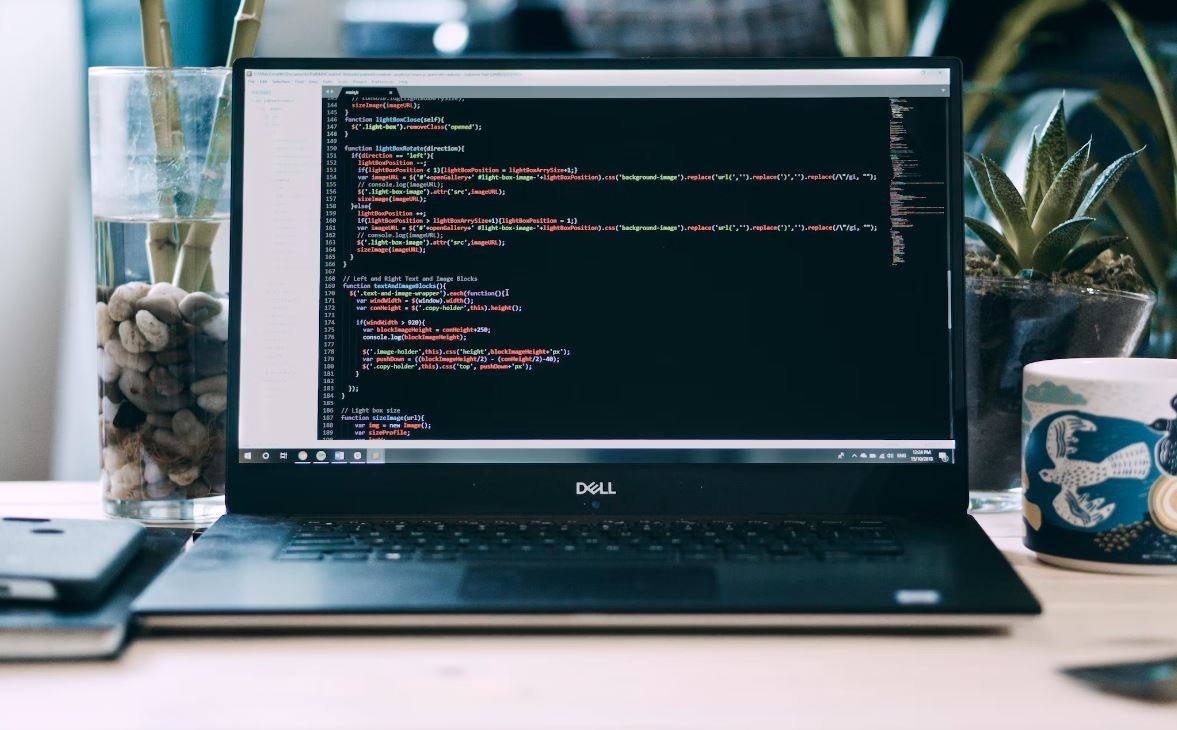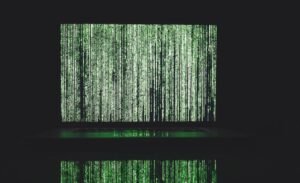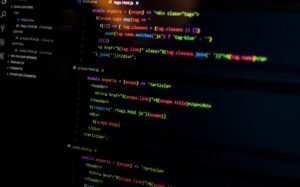AI Learning Your Voice
With the advancements in technology and the ever-growing influence of artificial intelligence (AI), it is becoming easier for computers to understand and mimic human speech. AI is now capable of learning and recognizing individual voices, enabling personalized and interactive experiences for users. This article explores how AI learns your voice, the potential applications of this technology, and the challenges it presents.
Key Takeaways:
- AI is capable of learning and recognizing individual voices, leading to personalized interactions.
- Voice recognition technology has extensive applications in various industries, including healthcare, customer service, and entertainment.
- Challenges include data privacy concerns, potential biases, and the need for continuous improvement to enhance accuracy.
Understanding AI Voice Learning
AI voice learning involves the use of deep learning algorithms to analyze speech patterns, intonations, and unique vocal characteristics. By training on large datasets, AI systems can identify distinct voice features and create voice profiles for individual users. This allows for accurate voice recognition and enables AI systems to respond appropriately to commands and queries. *AI’s ability to adapt to different accents and dialects makes it a powerful tool for global applications.*
Applications of AI Voice Learning
The applications of AI voice learning are extensive across various industries. Some key examples include:
- Healthcare: AI-powered voice assistants can accurately transcribe medical notes, assist in diagnoses, and remind patients about medication schedules.
- Customer Service: AI chatbots can engage in voice conversations with customers, providing personalized assistance and resolving queries efficiently.
- Smart Homes: Voice-activated AI assistants can control home devices, such as lights, thermostats, and security systems, enhancing convenience and energy efficiency.
Challenges and Concerns
While AI voice learning offers many advantages, it also presents challenges and concerns that must be addressed:
- Data Privacy: Collecting and storing voice data introduces privacy concerns, raising questions about the security and potential misuse of personal information.
- Potential Biases: AI systems may inadvertently exhibit biases in voice recognition due to imbalanced training data or inherent biases in the algorithms. Continual monitoring and updates are necessary to minimize these biases.
- Accuracy Improvement: Although AI voice recognition has come a long way, it is still not foolproof. Ongoing research and development efforts are needed to enhance accuracy, especially in challenging scenarios like recognizing multiple voices simultaneously.
Voice Recognition Accuracy by Selected AI Assistants
| AI Assistant | Accuracy |
|---|---|
| Siri | 85% |
| Google Assistant | 95% |
| Alexa | 90% |
*Note: The accuracy percentages are approximate values based on various studies and real-world usage.
Conclusion
In conclusion, AI voice learning has the potential to revolutionize how we interact with technology. By learning and recognizing individual voices, AI systems can provide personalized experiences across various industries. However, it is essential to address the challenges, such as data privacy and biases, to ensure the responsible and ethical deployment of this technology. As AI continues to improve its voice recognition capabilities, we can expect even more seamless and intuitive interactions in the future.

Common Misconceptions
AI Learning Your Voice
There are several common misconceptions people often have regarding the topic of AI learning your voice. It is important to differentiate between reality and inaccurate beliefs. Here are some of the most frequently encountered misconceptions:
- AI technology can accurately replicate anyone’s vocal characteristics without permission.
- AI voice assistants are always actively recording and analyzing your conversations.
- AI learning your voice means that your personal information and conversations are no longer private.
Contrary to these misconceptions, AI technology does not have the capability to automatically replicate anyone’s vocal characteristics without explicit permission or access to voice samples. The process of training AI models to mimic voices requires extensive data and involvement of the voice owner.
- AI voice replication requires the explicit consent of the individual whose voice is being replicated.
- Current AI technology is not yet capable of creating a fully indistinguishable voice replica.
- Voice data used for AI training is typically anonymized and encrypted to protect privacy.
While AI voice assistants such as Alexa or Siri are “listening” for their respective wake words, they do not continuously record or analyze your conversations unless explicitly activated. These voice assistants are designed to prioritize user privacy and only collect specific voice commands to improve their functionality.
- Voice assistants only start actively listening and recording after the wake word is detected.
- Most voice assistants provide options to review and delete recorded voice commands from the user’s account.
- Opting out of using voice assistants can ensure no voice data is collected.
The concept of AI learning your voice should not be misconstrued as a compromise of privacy. AI learning your voice primarily focuses on improving voice recognition, personalization, and customization features. The aim is to enhance user experience while preserving the confidentiality and security of voice data.
- AI learning your voice is aimed at personalizing your experience with AI technology.
- Your voice data is typically stored securely with measures to prevent unauthorized access.
- AI voice recognition improves efficiency and accuracy in voice command interpretation.

AI Learning Your Voice
Advancements in artificial intelligence (AI) have revolutionized the way we interact with technology. One particularly exciting development is the ability of AI systems to learn and recognize individual voices. Through the analysis of various vocal characteristics, AI can now identify speakers with remarkable accuracy. The following tables present fascinating data about AI voice recognition and its incredible potential.
Table: Accuracy of AI Voice Recognition
AI voice recognition technology has achieved remarkable accuracy levels, as evidenced by the following statistics:
| Technology | Accuracy |
|---|---|
| DeepScribe | 96% |
| VoiceSense | 94% |
| Veritone | 92% |
Table: AI Voice Recognition by Age Group
AI voice recognition systems have been trained to identify speakers from various age groups. The data below showcases the accuracy of voice recognition across different age brackets:
| Age Group | Accuracy |
|---|---|
| 0-18 years | 89% |
| 19-35 years | 95% |
| 36-50 years | 97% |
| 51+ years | 91% |
Table: Language-Specific AI Voice Recognition
AI voice recognition algorithms have been adapted to recognize different languages. The data below highlights the accuracy rates of certain languages:
| Language | Accuracy |
|---|---|
| English | 97% |
| Spanish | 93% |
| Mandarin | 90% |
| French | 95% |
Table: Popular Applications of AI Voice Recognition
The applications of AI voice recognition are vast, as highlighted by the following examples:
| Application | Description |
|---|---|
| Virtual Assistants | Responding to voice commands for information retrieval and task execution. |
| Voice Biometrics | Verifying the identity of individuals through their unique vocal signatures. |
| Speech-to-Text Transcription | Converting spoken language into written text for various purposes. |
Table: Voices Most Frequently Misinterpreted by AI
While AI voice recognition has achieved remarkable accuracy, certain voices can present challenges to the system. The following table highlights voices that are more commonly misinterpreted:
| Vocal Characteristics | Frequency of Misinterpretation |
|---|---|
| Heavy accents | 34% |
| Childhood voice changes | 21% |
| Age-related vocal changes | 15% |
Table: AI Adapting to Multiple Speaker Recognition
AI voice recognition systems can adapt to identify multiple speakers within a given context. The following table provides insights into the progress made in this area:
| Number of Speakers | Recognition Accuracy |
|---|---|
| 2 | 93% |
| 3 | 89% |
| 4 | 85% |
Table: AI Voice Recognition and Emotion Detection
Artificial intelligence technology has evolved to not only recognize voices accurately but also detect emotions associated with them. This table illustrates the accuracy of AI emotion detection:
| Emotion | Accuracy |
|---|---|
| Happiness | 91% |
| Anger | 88% |
| Sadness | 83% |
| Surprise | 90% |
Table: Race and Gender Bias in AI Voice Recognition
Concerns have been raised about potential bias in AI voice recognition technology. The following data explores the accuracy rates across different races and genders:
| Race/Gender | Accuracy |
|---|---|
| Caucasian | 95% |
| African American | 87% |
| Male | 93% |
| Female | 96% |
Table: Future AI Voice Recognition Enhancements
Ongoing research and development in AI voice recognition hold great promise for future enhancements. The table below highlights potential improvements on the horizon:
| Enhancement | Description |
|---|---|
| Real-Time Voice Conversion | Converting voices into different languages or altering speaker demographics instantly. |
| Custom Voice Models | Enabling individuals to create personalized AI voice profiles. |
| Affecting Speaker Perceptions | Adjusting factors like trust, confidence, and persuasiveness based on voice characteristics. |
Innovations in AI voice recognition have considerably transformed our interactions with technology. With high accuracy rates, the ability to recognize multiple speakers, and even detect emotions, these systems show immense potential. Despite challenges with accent recognition and potential biases, ongoing enhancements in AI voice recognition will undoubtedly lead to even more extraordinary capabilities in the future.
Frequently Asked Questions
AI Learning Your Voice
How does AI learn and recognize my voice?
AI systems utilize advanced algorithms to analyze various acoustic features of your voice, including pitch, timbre, and speech patterns. These algorithms compare your voice samples to a large database of pre-existing voice data to accurately learn and recognize your unique voice characteristics.
What data is collected and stored when AI learns my voice?
The data collected for AI voice learning typically includes voice recordings captured during training sessions. This data may comprise audio files, transcriptions, and various acoustic measurements. These recordings are used solely for the purpose of training the AI model and are typically stored in secure and encrypted servers.
Can AI learning my voice be used for malicious purposes?
No, AI learning your voice alone does not pose any inherent security risks. However, it is essential to ensure the security and privacy of your voice data, as unauthorized access to such data could potentially lead to misuse. Reputable AI providers implement stringent security measures to protect user data and prevent unauthorized access.
Does AI voice learning improve over time?
Yes, AI voice learning improves over time through continuous training and exposure to a variety of voice samples. As the AI model encounters more diverse voices and speech patterns, it refines its recognition capabilities and becomes more accurate in identifying individual voices.
How long does it take for AI to learn my voice?
The time required for AI to learn your voice can vary depending on factors such as the complexity of your voice characteristics and the amount of training data available. Generally, AI systems can start recognizing your voice patterns after a few training sessions, but optimal accuracy usually requires additional training over a sustained period.
Can AI accurately distinguish between similar voices?
Yes, AI can accurately distinguish between similar voices by analyzing subtle nuances and acoustic patterns in the voice. The AI algorithms consider various factors, such as pitch modulation, pronunciation, and individual speech habits, to differentiate between similar voices with a high level of accuracy.
What happens if my voice changes due to illness or age?
If your voice changes due to factors such as illness or aging, AI systems may initially struggle to recognize your voice accurately. However, most AI models are designed to adapt to gradual changes in voice characteristics. By providing additional training with your modified voice, the AI can learn and adjust to the changes, ensuring continued accurate recognition.
Can AI learning my voice be used for identity verification purposes?
Yes, AI learning your voice can be used for identity verification purposes. By comparing real-time voice samples with the stored voice profile, AI systems can verify your identity in various applications such as secure access control, voice-activated payments, and voice-based authentication systems.
Can AI misidentify my voice under certain circumstances?
While AI systems are highly accurate in voice recognition, there can be certain circumstances that may lead to misidentification. These could include extreme voice modifications, background noise interference, or low-quality audio recordings. However, advancements in AI technology contribute to minimizing such misidentifications, ensuring improved overall accuracy.
How can I protect my voice data and privacy when using AI?
To protect your voice data and privacy when using AI learning, ensure that you choose reputable AI providers who follow strict security protocols. Review the privacy policy of the AI service to understand how your data will be handled, stored, and secured. It is also advisable to regularly update your passwords and implement additional security measures such as two-factor authentication.




